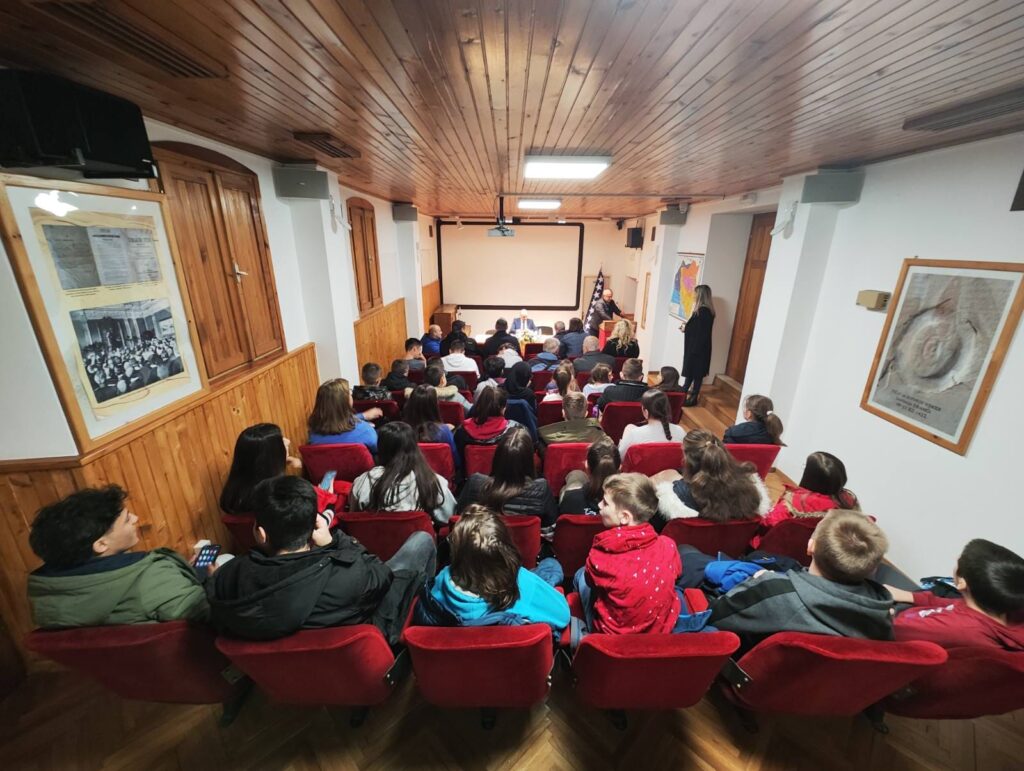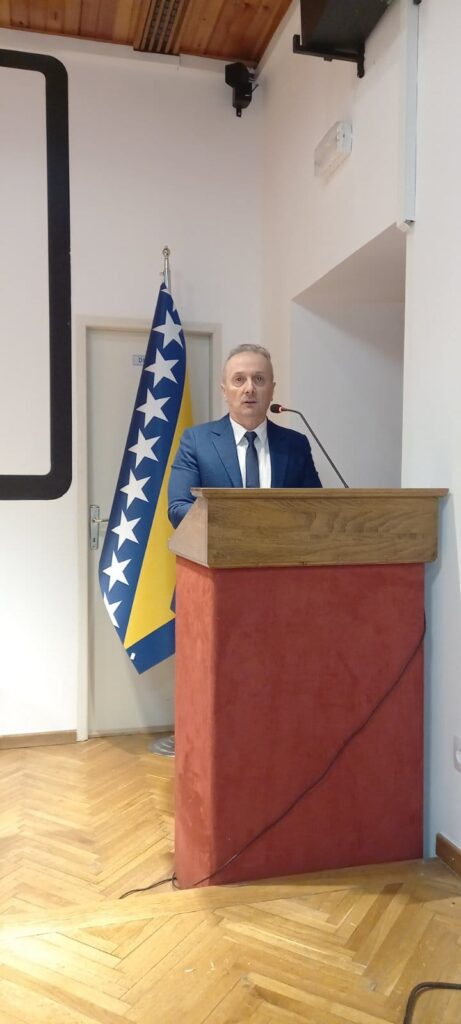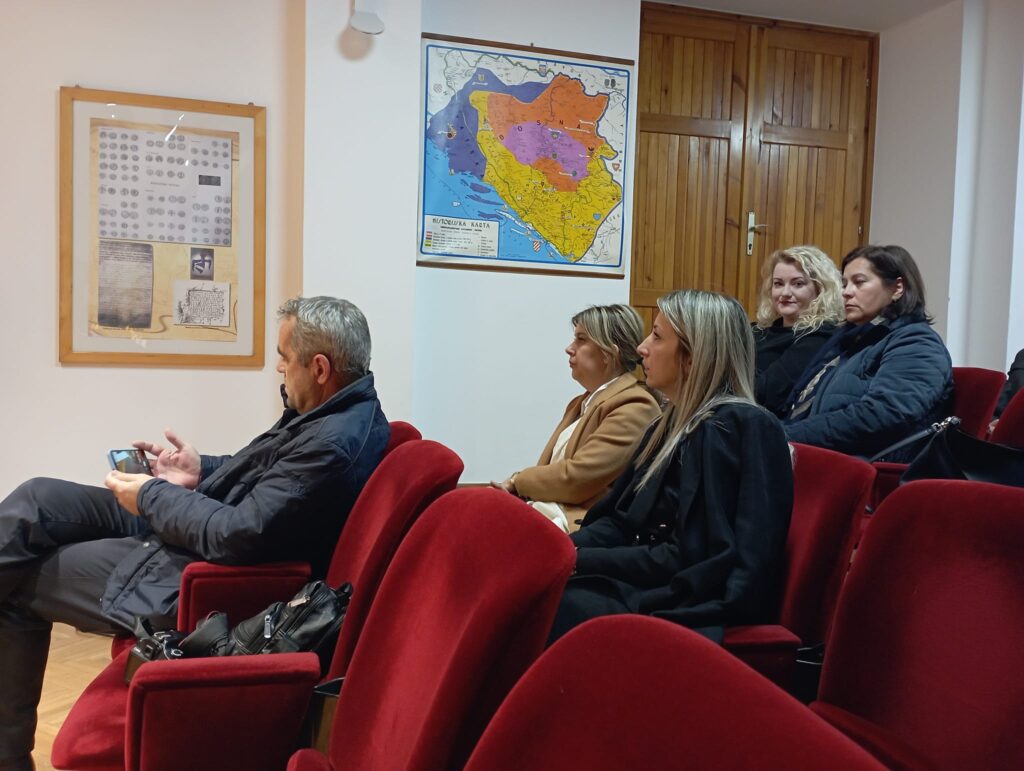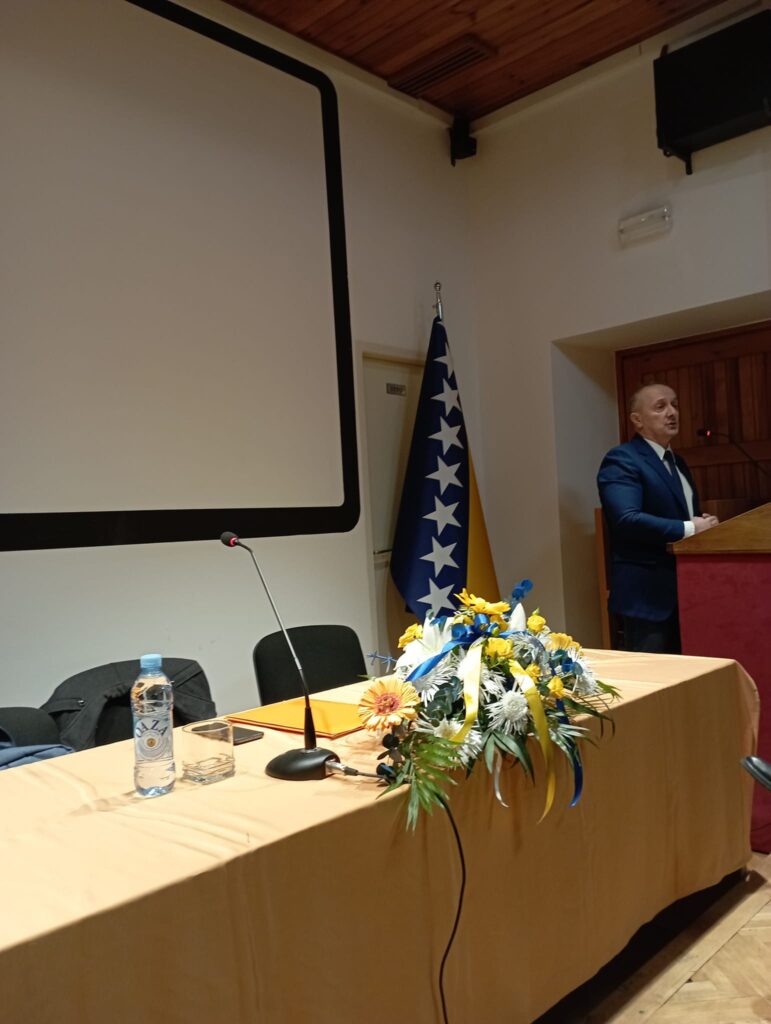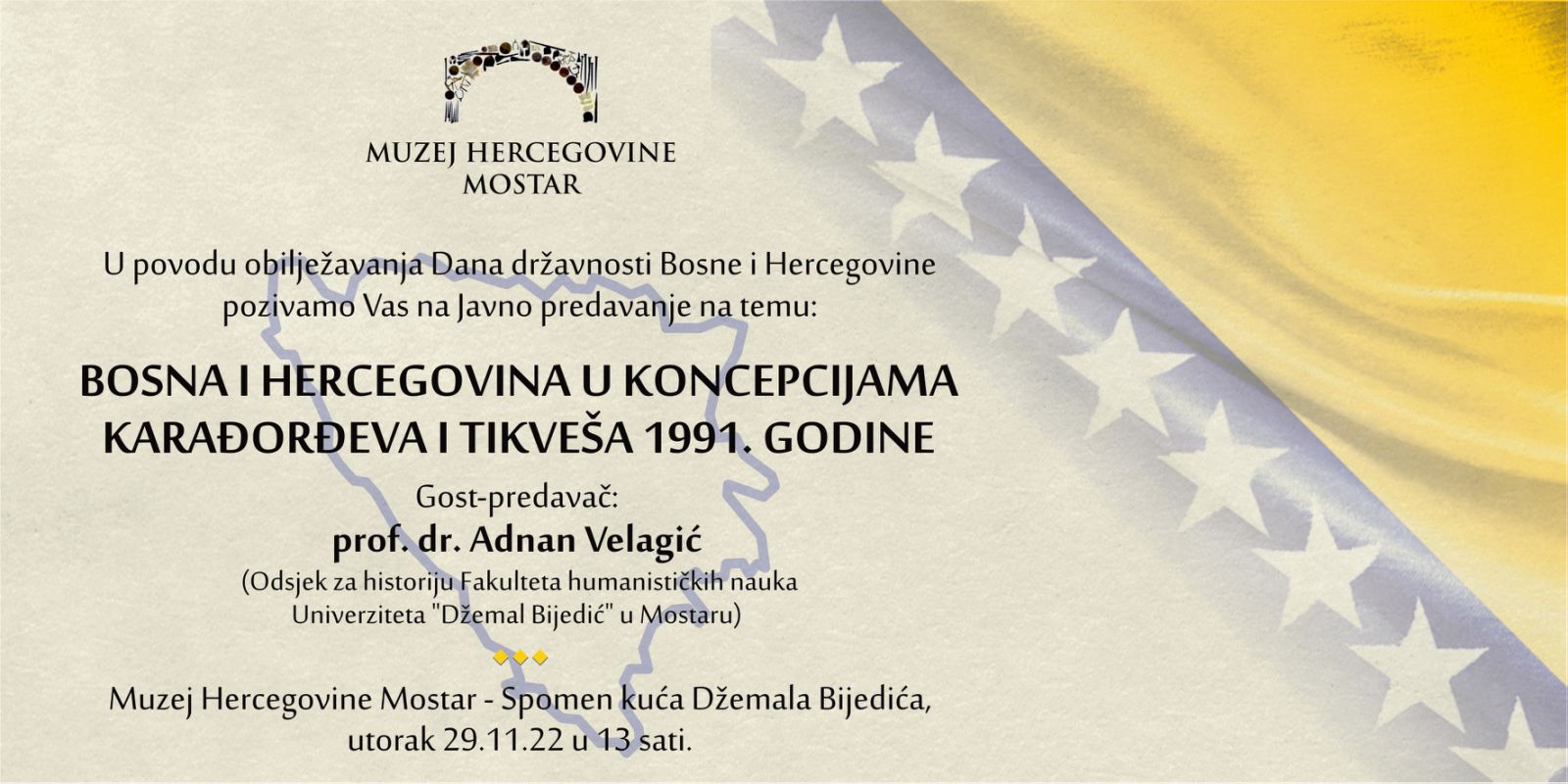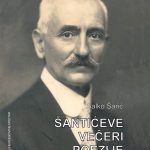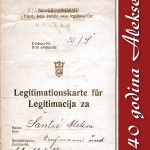On the occasion of the Statehood Day of Bosnia and Herzegovina, a public forum was held today in the amphitheater of the Herzegovina Museum named : BOSNIA AND HERZEGOVINA IN THE CONCEPTS OF KARAĐORĐEV AND TIKVĆE IN 1991.
The guest lecturer at the Tribune was prof. Dr. Adnan Velagić, professor at the University “Džemal Bijedić” in Mostar.
In a full amphitheater, the manager of the Museum, Mr. Asim Krhan noted that today’s topic is important not only from the aspect of illuminating very important issues from the modern history of Bosnia and Herzegovina, but also in the context of today’s times. Reminding those present that the issue of the position of Bosniaks, and therefore of “Zavnobih” Bosnia and Herzegovina, was opened three days after the First Session of ZAVNOBiH, at the Second Session of AVNOJ, when the decisive mention of Muslims as a nation in the future socialist Yugoslavia was omitted. This injustice was partly corrected in 1963, when the sixth flare was added to the coat of arms of Yugoslavia, but then the ideology that the flares represented nations was abandoned and the doctrine of flares as symbols of the republic was adopted. That the issue of Muslim nationality remained open even then, as stated by Krhan, is evidenced by the fact that Muslims only received their nationality in 1968, as Muslims. In this way Krhan gave a sort of introduction to the topic of the Public Forum.
Prof. Velagić , in his presentation, focused attention on the days of socialist Yugoslavia and emphasized the following: During the 80s of the 20th century, socialist Yugoslavia faced various social problems, which dissolved the fragile fabric of Tito’s state-political heritage. At the beginning of the 90s, when the unstoppable phase of dissolution of this country began, national-chauvinist quasi-elites surfaced, with the aim of realizing their grand national ambitions in a period of general disturbances. Although in this whirlwind of social events, the possibility of military intervention by the JNA was used as an indispensable threat factor, the behind-the-scenes political agreements of the republic’s leaders were very often much more effective in realizing certain goals.
Sometimes conducted publicly and sometimes secretly, these negotiations undermined the authority of state bodies and rendered their existence meaningless. In this context, the most famous separate negotiations from the beginning of the 90s on the soil of the disintegrating Yugoslavia, conducted between Slobodan Milošević and Franjo Tuđman, can be observed. Although due to the lack of transcripts we have no insight into the details of these conversations, numerous close associates of the Serbian and Croatian presidents, as well as participants in various political sessions, very clearly indicate the presence of a high degree of mutual agreement between them. However, all that remained only in the sphere of their agreement in principle.
It seems that the basis of the misunderstanding between these two national leaders was the so-called perspective on the division of Bosnia and Herzegovina.
Namely, while Tuđman insisted that the AVNOJ borders of Croatia are inviolable and that after this recognition by Serbia, the division of Bosnia and Herzegovina can be discussed – and only on the basis of the Cvetković Maček agreement – for Milošević, the AVNOJ is not
represented a “sacred letter”, but the Status quo ante belum came into consideration, i.e. the time before the war, from 1918, and that the division of Bosnia and Herzegovina can be discussed in the context of the global demarcation between the Serbian and Croatian worlds. Nevertheless, today, three decades after Karađorđev and Tikveš, as prof. Velagić expresses a justified suspicion that it was only a “double political game” by Slobodan Milošević, who entered into such talks with Croatian President Franjo Tuđman, not to divide Bosnia and Herzegovina with him, but to confront him with the Bosniaks and thus weaken the front. against Serbian hegemony in Yugoslavia. Prof. this statement.
Velagić justified by citing numerous statements of Tuđman and Milošević, as well as addresses of their close associates and participants in numerous political conversations. At the end of his presentation, Prof. Velagić emphasized that the question of studying the conversations in Karađorđev and Tikveš is extremely important not only from the aspect of studying the modern history of Bosnia and Herzegovina, but also in the context of scientifically provable, which confirms a cause-and-effect relationship of long continuity and additionally illuminates the position of Bosnia and Herzegovina in the Serbian and Croatian politics in the late 80s and early 90s of the XX century.

